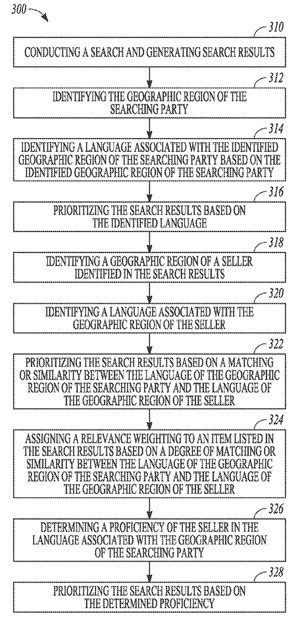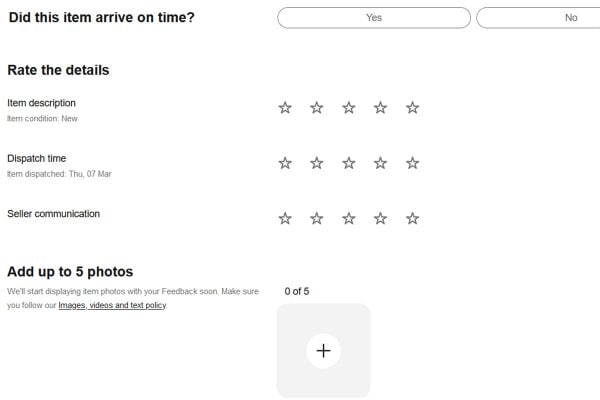In cross border transactions, buyers may be more likely to purchase from sellers who speak the same language as they do as this is likely to ensure smoother communication pre- and/or post-transaction. How to fulfil this through search results is the basis of a patent claim by Frederic Billou, eBay director of global ecommerce and payments.
 Giving an example, the patent says that if a buyer in Mexico is looking for an item available from both a Spanish and a German seller, a ranking algorithm favours items in which buyers and sellers speak the same language and so should surface the item from the Spanish seller first (everything else being equal).
Giving an example, the patent says that if a buyer in Mexico is looking for an item available from both a Spanish and a German seller, a ranking algorithm favours items in which buyers and sellers speak the same language and so should surface the item from the Spanish seller first (everything else being equal).
It explains that the aim is that when a buyer searches for a product, the system detects which region the is from and makes a language determination for that region (e.g. Spanish for Spain or Mexico), then detects the language of a region where product sellers are located and ranks sellers having a language in common with the buyer higher in a listing of search results.
The patent also tries to guess the best language for the buyer, regardless of the language they search in, their browser language, or search engine used the aim is to detect the natural language of the buyer and present search results from sellers with matching language skills.
Another aspect of the algorithm would be to match closely related languages where possible, for example, although Italian is a different language than Spanish, it is still closer to Spanish than Arabic or Chinese. Preferred ranking weights might be 1) Italian and Italian; 2) Italian and Spanish; or 3) Italian and Chinese.
Importantly feedback and defect history could come into play, for instance using feedback from other buyers of the same or similar language regarding their experience with a given seller. This means that, if the algorithms are ever (or have been) implemented into eBay Best Match the more successful transactions you have with buyer of a particular language would result in your products being higher ranged to other buyers (possibly in totally different countries) who speak the same language.
eBay aren’t likely to reveal the inner workings of Best Match, so all this patent really tells us is that if you are successful in giving great cross border buying experiences you’re like to be a more successful seller in the future. It also suggests that if you’re not already translating your listings then it’s probably time to start doing so and if possible to answer any customer communications in their mother tongue too.











6 Responses
Sounds like a very complicated way of implementing a ‘select preferred language’ option.
Whats wrong with a drop down menu ?
ebay has a language no one speaks and less understand
It should be based on the language used within the listing and not the country the seller is based in – a lot international sellers aim at an English speaking market.
how far do you take it
thousands of local dialects in China alone
even in the uk
geordie,s scots, welsh ,scouse, cockney, brummies , etc etc
the worlds international trading currency is dollars and its language is English, its that simple
Only eBay could have the brass neck to try patenting any part of their abysmal search